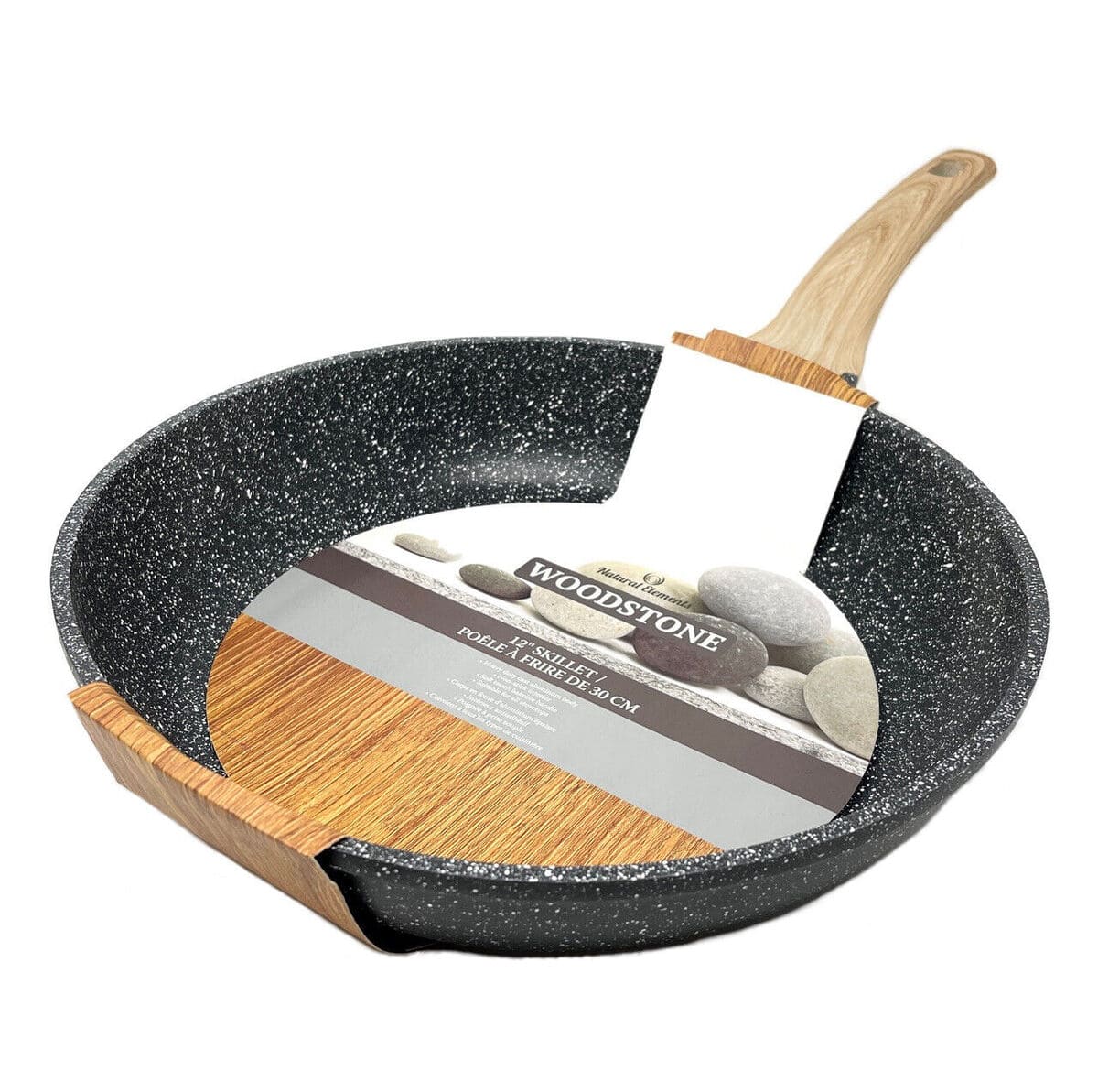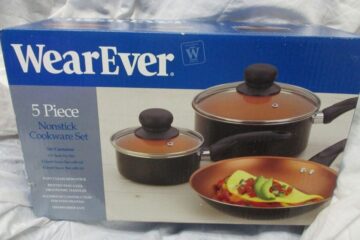Woodstone cookware has become increasingly popular in recent years due to its durability and natural non-stick properties. However, many people are concerned about the safety of this type of cookware and whether it poses any health risks.
Woodstone cookware is made from a combination of wood fibers and a non-stick coating that is free from PFOA, PFAS, lead, and cadmium. The wood fibers provide a natural non-stick surface that is resistant to scratches and abrasions, making it ideal for cooking a variety of foods. However, some people are concerned about the safety of the non-stick coating, as some studies suggest that certain chemicals used in non-stick coatings may be harmful to human health.
Despite these concerns, many experts agree that woodstone cookware is generally safe to use. As long as it is used properly and maintained correctly, woodstone cookware can provide a safe and healthy cooking experience. However, it is important to choose high-quality cookware that is free from harmful chemicals and to follow the manufacturer’s instructions for use and care.
What is Woodstone Cookware?
Woodstone cookware is a type of cookware that is made from a unique blend of minerals and ceramic materials. This cookware is known for its durability, non-stick properties, and ability to cook food evenly. It is also popular because it is free from harmful chemicals and toxins that can be released into food during the cooking process.
Woodstone cookware is typically made by blending ceramic materials with minerals such as zirconium, titanium, and aluminum. The resulting material is then fired at high temperatures to create a durable, non-stick surface that can withstand high heat and resist scratches and other types of damage.
One of the key benefits of woodstone cookware is that it is free from harmful chemicals such as PFOA and PFAS, which are commonly found in other types of non-stick cookware. This makes it a safer option for cooking food, especially for those who are concerned about the potential health risks associated with exposure to these chemicals.
In addition to its safety benefits, woodstone cookware is also known for its versatility. It can be used to cook a wide range of foods, from eggs and pancakes to meats and vegetables. Its non-stick surface makes it easy to clean, and it can be used on a variety of stovetops, including gas, electric, and induction.
Is Woodstone Cookware Safe?
When it comes to cooking, people want to make sure that they are using safe and healthy cookware. One type of cookware that has been gaining popularity in recent years is woodstone cookware. But is woodstone cookware safe to use? Let’s take a closer look.
Materials Used in Woodstone Cookware
Woodstone cookware is made from a combination of wood fibers and a non-toxic, food-safe resin. The wood fibers used in woodstone cookware are typically sourced from sustainable forests, making it an eco-friendly choice. The non-toxic resin used in woodstone cookware is free from PFOA, PTFE, and other harmful chemicals commonly found in non-stick coatings.
Safety Features of Woodstone Cookware
Woodstone cookware is designed to be safe and durable. It is heat-resistant up to 450°F, making it suitable for use in the oven. It is also dishwasher safe, making it easy to clean. Additionally, woodstone cookware is non-reactive, meaning it won’t leach harmful chemicals into your food.
Health Concerns Associated with Woodstone Cookware
While woodstone cookware is generally considered safe, there are some health concerns to be aware of. One concern is the potential for the wood fibers to harbor bacteria if not cleaned properly. It is important to follow the manufacturer’s instructions for cleaning and sanitizing woodstone cookware to prevent the growth of harmful bacteria.
Another concern is the potential for the non-toxic resin to break down over time and release harmful chemicals into your food. However, this is a theoretical concern and there is no evidence to suggest that this actually happens with woodstone cookware.
Pros and Cons of Using Woodstone Cookware
Advantages of Woodstone Cookware
Woodstone cookware is a type of stoneware cookware that is made from a blend of ceramic and wood particles. Here are some of the advantages of using woodstone cookware:
- Natural and Chemical-Free: Woodstone cookware is made from natural materials and does not contain any harmful chemicals, making it a safe option for cooking.
- Non-Stick Surface: Woodstone cookware has a non-stick surface that makes cooking and cleaning easier.
- Retains Heat: Woodstone cookware retains heat well, which means that food stays warm for longer periods of time.
- Durable: Woodstone cookware is durable and can last for a long time with proper care.
Disadvantages of Woodstone Cookware
While woodstone cookware has many advantages, there are also some disadvantages to consider:
- Heavy: Woodstone cookware is heavier than other types of cookware, which can make it difficult to handle and store.
- Fragile: Woodstone cookware can be fragile and may break if dropped or mishandled.
- Requires Special Care: Woodstone cookware requires special care and cannot be cleaned in a dishwasher or with abrasive cleaners.
- Limited Availability: Woodstone cookware may not be as widely available as other types of cookware, which can make it harder to find and purchase.
How to Care for Woodstone Cookware?
Cleaning Woodstone Cookware
To keep Woodstone cookware in good condition, it is important to clean it properly. Here are some tips for cleaning Woodstone cookware:
- Allow the cookware to cool before cleaning it.
- Hand wash the cookware with warm soapy water and a soft sponge.
- Do not use abrasive cleaners or scouring pads, as they can scratch the surface of the cookware.
- Do not use citrus juices or citrus-based cleaners, as they can dull the exterior gloss.
- Dry the cookware thoroughly after washing to prevent water spots.
Storing Woodstone Cookware
Proper storage of Woodstone cookware can help to prolong its lifespan. Here are some tips for storing Woodstone cookware:
- Store the cookware in a dry, cool place.
- Do not stack the cookware, as this can cause scratches and damage to the surface.
- Use a soft cloth or paper towel to separate the pieces of cookware when storing them.
- Do not store the cookware with the lids on, as this can trap moisture and lead to rust.
- If you need to stack the cookware, place a soft cloth or paper towel between each piece to prevent scratching.
Conclusion
In conclusion, woodstone cookware is a safe and healthy option for cooking. It is a natural material that does not contain any harmful chemicals or toxins. Compared to other cookware materials, woodstone cookware is a better option for those who are looking for a non-toxic and eco-friendly option.
One of the main benefits of woodstone cookware is its durability. It is a long-lasting material that can withstand high temperatures and is resistant to scratches and cracks. It also has a non-stick surface that makes it easy to clean and prevents food from sticking to the surface.
Another advantage of woodstone cookware is its ability to retain heat. It can maintain a consistent temperature, which makes it ideal for slow cooking and simmering. This feature also helps to reduce energy consumption and save money on utility bills.
Overall, woodstone cookware is a great investment for anyone who is looking for a healthy and sustainable option for cooking. Its natural properties and durability make it a reliable choice for any kitchen.



